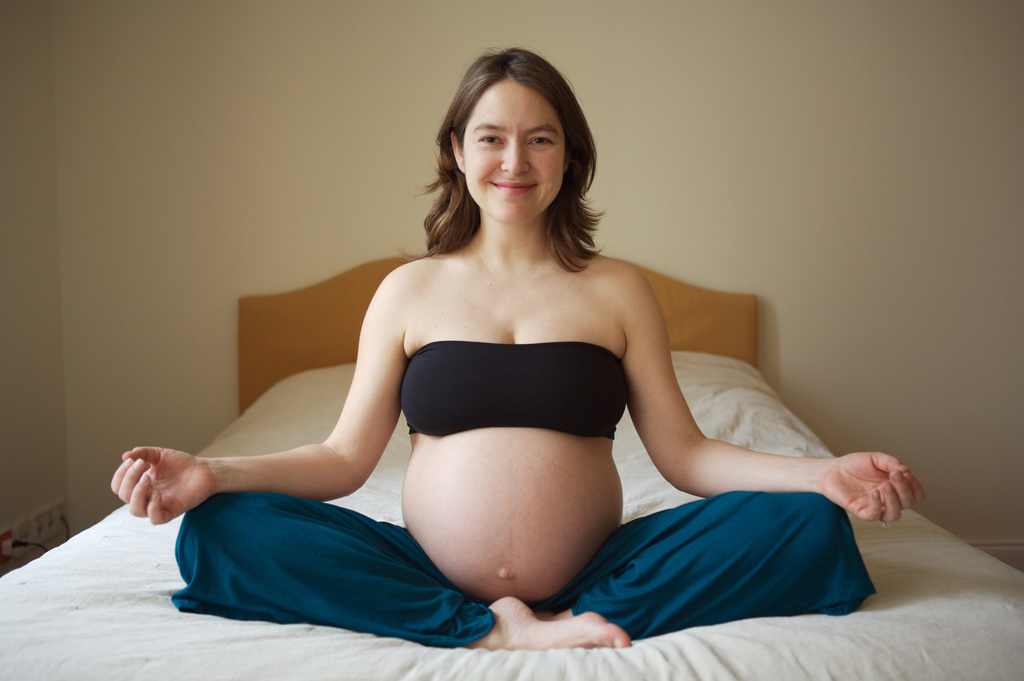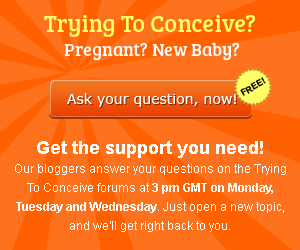You know that you need to follow a healthy diet during pregnancy, and that you should work out to stay fit. But how many of these 10 surprising facts about pregnancy nutrition and fitness are new to you?

Thanks to bettina n/Flickr Creative Commons.
1. You CAN diet during pregnancy
Most people think that it isnt safe to go on a weight loss diet during pregnancy, no matter what the expectant mother weighs. Recent research shows that this is not true at all, and that it is indeed safe to go on a restricted-calorie diet during pregnancy if you are obese or overweight. In fact, this type of diet can help prevent gestational diabetes, high blood pressure, preeclampsia, preterm labor and you guessed it very large babies.
Pregnancy weight loss diets should be very balanced and focus on meeting the nutritional needs of the mother and her growing fetus, while cutting out excess fats and sugars, and excess calories. Its best to see a nutritionist for a personal diet plan in order to lose weight in the most responsible manner. You can safely adjust your diet yourself too, especially if you consume more than the recommended daily amount of calories.
2. When should you avoid exercising?
Prenatal exercise is beneficial for almost all mothers, and by working out two, three, four or five times a week you positively influence your health and your babys. As with everything, there are exceptions. Who should not exercise during pregnancy? If you have vaginal bleeding during pregnancy (very possibly due to placenta previa), a confirmed placenta previa, have had repeated miscarriages, have a history of preterm labor or an incompetent cervix, then you should take it easy. Discuss the specifics with your OBGYN.
If you have diabetes, heart diseases, or asthma you probably should exercise much either. Again, talk to your doctor for more info.
3. Boost your iron through diet
Iron-deficiency anemia is a very common ailment during pregnancy, and one that can affect both you and your baby negatively — if you are anemic during your pregnancy, your baby is more likely to be anemic during infancy too. Dont immediately assume you need a supplement, though. Iron-rich foods are a much better option, as iron from food sources is more easily absorbed by the body and doesnt give you the side effects (read: https://www.ecellulitis.com/) iron tablets do. Eat three servings of iron-rich foods (including dried apricots, spinach, and red meat) a day, to make sure you are getting 27 mg a day.
4. Sports to stay away from when youre pregnant
Contact sports are best avoided when you are pregnant, since someone can hurt your abdomen and your baby. Avoid martial arts like judo, tae kwon do and karate unless you make adjustments that keep you and your baby safe from injury. Team sports like soccer and basketball pose a risk too. Obviously, you need to stay away from sports that are always dangerous, like white water rafting .
5. Folic acid from foods
(Almost) every woman knows that she needs to be taking folic acid for at least three months before she starts trying to get pregnant, and that she needs to continue taking folic acid supplements through the first trimester. Did you know that folic acid is the artificial form of the B vitamin folate, though? Incorporate folate into your diet by eating leafy greens, which also give you iron. Lima beans and chickpeas are great too. If you are a meat eater, veal is rich in folate.
6. The safest pregnancy exercises
Swimming exercises the whole body and is very safe. Other options that make it to the top 10 safest pregnancy exercises include walking, cycling using an indoor training bike, yoga, and low-impact cardio exercises. Contrary to popular belief, abdominal exercises are safe during pregnancy and extremely beneficial. Just make sure you select prenatal abdominal exercises. If you dont want to go to the gym, YouTube can help you out.
7. Craving non-food items
Pregnancy cravings are a very interesting phenomenon that still baffles scientists. But what if you crave something even weirder than a pickled gherkin sandwich with ice cream on top? Some women crave non-food items like sponge, crayons, charcoal, or soap during their pregnancies. This is known as pica, and it can be very dangerous indeed. Talk to your doctor if you experience these urges, and dont give in.
8. The most important pregnancy exercise is invisible
Walking, cycling, and swimming are all great and very safe prenatal exercises, as we mentioned. There is one other type of exercise that is extremely safe and just as important: Kegels. Kegel exercises train the pelvic floor muscles, and may set you up for an easier birth. They also help prevent pregnancy and postpartum incontinence. Kegel away!
9. Your baby tastes your foods through amniotic fluid
Dont want a picky eater? Parenting begins in the womb. Your baby is exposed to a mild version of the tastes you enjoy through the amniotic fluid shes surrounded by. Eat all the exotic foods you want! Dont feel like you need to stay away from spicy foods, but do avoid dangerous items like raw meat and cheese.
10. Labor and birth offer you a great workout
Are you worried that you are going to look pregnant after you give birth? Remember that youve got one grand marathon ahead of you, and that marathon is going to burn lots of calories. A natural, unmedicated labor and birth requires an awful lot of hard, physical exercise. Youll burn some of that baby fat during your labor. The baby, amniotic fluid, and placenta also weigh a lot. Labor and birth really help you lose weight more quickly than ever before.

